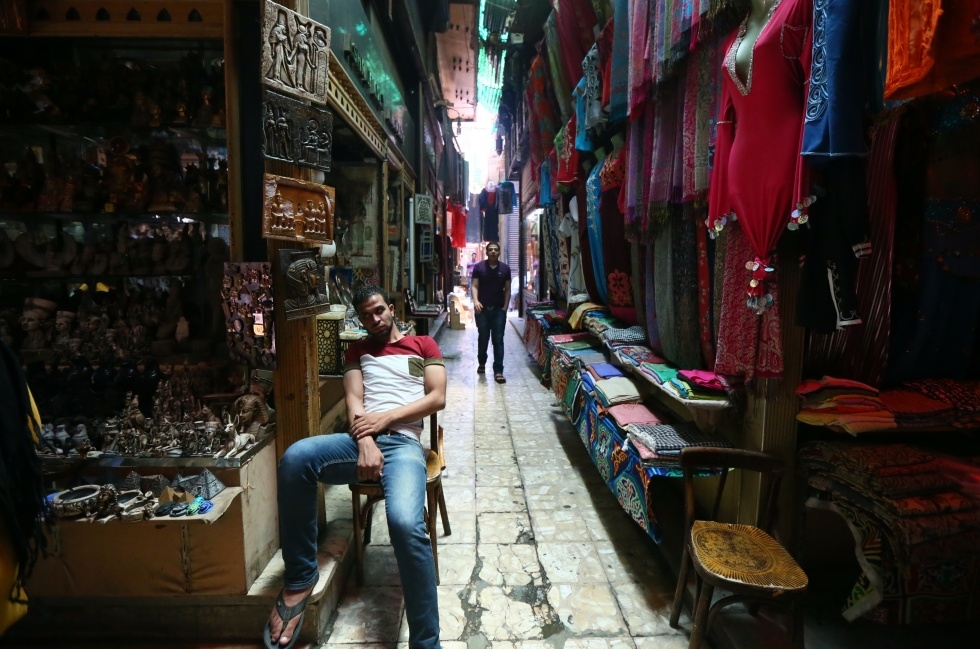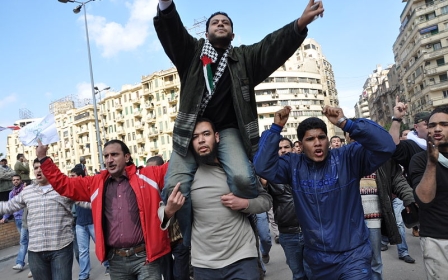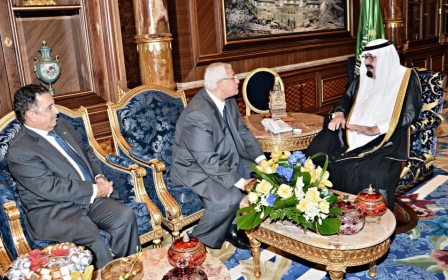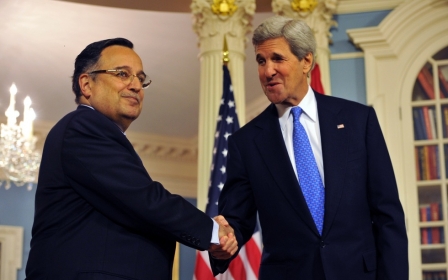Sisi faces tough decisions over fixing Egypt's economy

The victory of ex-army chief Abdel Fatah al-Sisi in the Egyptian elections on Thursday has been hailed by his supporters as a victory for security and stability after a turbulent period in Egypt’s history.
But as Sisi takes power, he will be forced to contend with several potentially destabilising challenges to the country, including Egypt's economy, which is seen by many to be in a state of disarray.
Unemployment currently stands at 13 percent, inflation is at 12 percent and Egypt’s tourism industry, previously a bedrock of the economy, has crashed in the wake of fears over violence and instability.
Egypt’s economy will require a massive overhaul to reform public expenditure, 30 percent of which is currently used to pay for food and energy subsidies, said David Butters, associate fellow at Chatham House.
“The economy’s always going to be difficult, looking at where he starts from,” he told Middle East Eye. “There’s a balancing act to be done towards trying to cut parts of the budget where the huge spending is wasteful.”
New MEE newsletter: Jerusalem Dispatch
Sign up to get the latest insights and analysis on Israel-Palestine, alongside Turkey Unpacked and other MEE newsletters
In spite of Sisi's perceived popularity, when it comes to bread and butter issues, it might be hard to bring people on board with tough decisions.
“Even if, in a technically explained way, you say that cutting subsidies does not equal austerity for everybody, a lot of people are not going to believe that," Butters said. “Where Sisi comes in is to be able to make the case in a coherent way that people actually trust and that’s what’s going to be quite difficult.”
Riots followed an attempt by the government to cut bread subsidies in 1977, after a 'liberalisation' of the economy by the then-President Anwar Sadat.
The unpopularity of any move to slash subsidies has been one of the main reasons that successive governments have failed to reform the system, says Mohamed Okda, business consultant and founder member of Egypt’s Salafist Al-Watan Party.
“Any kind of reduction to subsidies has to be smart, has to be intelligent and has to be targeted at the right part of society. There is a big segment of Egyptian society that is truly dependent on the subsidies for food and energy,” he said.
He maintains, however, that the subsidies are overall not necessarily going to the people who need them.
“They’re being abused over and over again by a large group of businessmen and parts of the government,” he told MEE. “Anyone in Egypt right now can go and fill up their gas tank at a price which is a fraction of the international price for oil or gas. That’s including foreign diplomats, tourists, successful businessmen and so on. So the subsidies are not going to the people who actually need it.”
Borderline solvent
Enormous amounts of money have been pumped into Egypt by Saudi Arabia and the United Arab Emirates since the overthrow of former President Mohamed Morsi in July 2013.
While it has plugged a hole in Egypt’s finances, some have suggested the country has become over-reliant on the Gulf states, meaning a withdrawal of funding could devastating.
“There would be an immediate collapse in the Egyptian economy,” Mohamed Okda told MEE. ”Pretty much the entire Egyptian economy at this moment is dependent on these cash injections.”
The only reason Egypt's economy is "borderline solvent" at the moment, says David Butter, is the amount of aid that has been provided by Gulf countries over the past year.
“The trick is going to be turning that aid into investment which leads to growth,” he told MEE. “And that’s going to be difficult.”
One difficulty, according to Okda, is the lack of investment from the private sector. “Tax revenues have been really down in Egypt in the last few years and economic output has been down...they have to reduce spending, but for them to keep the economy going they have to increase spending.”
Nevertheless, “the public debt is unmanageable.”
Strengthening the role of the state
Sisi has expressed the importance of "strengthening the role of the state which must monitor and remain engaged in the organisation and implementation of projects.”
The army is believed to control around a third of Egypt’s economy, owning many state-run industries, and analysts have suggested that the former military leader may wish to maintain similar economic policies while in government.
"He clearly sees a role for the army and state institutions in the economy which some businessmen consider as competition," said Mustapha Kamel al-Sayyid, professor of political science at Cairo University.
"For Mr Sisi, fighting poverty means depriving the Muslim Brotherhood of its popular support as it provides the poor with social services,” he told AFP.
Sisi has said he may introduce a “mechanism” for controlling prices of some products to ensure the private sector “reduces its profit margins.”
It marks a change from a speech by Sisi in March where he called for austerity in the light of “very, very difficult” economic circumstances.
“The country will not make progress by using words,” he said at the opening of the second conference of young doctors and recent graduates. “It will make progress by working, and through perseverance, impartiality and altruism. Possibly one or two generations will [have to suffer] so that the remaining generations live.”
In 2006, he also criticised the protectionist and social-democratic policies of the Arab world for trying to sustain government controlled markets instead of free markets"
The seeming contradiction between setting out an agenda of austerity and a programme of state intervention in the economy has already raised some eyebrows.
Sisi set out his economic vision in a programme entitled “Map of the Future” released shortly days before the election.
The programme draws on practices carried over from Mubarak’s time in office and involves massive design projects including building cities in the desert, highways, airports and other infrastructure investments.
The plan has already been existence for many years - in 2005 it was dismissed by the Mubarak government after a ministerial committee balked at the $23.7 billion price tag.
In the programme’s own words, it “aspires to achieve unprecedented rates of development and effect a quantum leap in the Egyptian economy after the way is cleared by the new administrative and investment maps for the provinces.”
Daniel Broby, chief executive of investment boutique Gemfonds, said Sisi’s plans for the economy were weak and contradictory.
"Sisi is a child of cronyism and militarism”, he told Reuters, “He will find it hard to mount a convincing reform agenda.”
Tough decisions
The Cairo Stock Exchange fell 2.3 percent on Wednesday and a further 2 percent on Thursday suggesting there may be jitters about Sisi’s success.
Mohamed El Sewedy, chairman of the Federation of Egyptian Industries, denied such concerns.
“The business community is very happy about the results," Sewedy told The Independent newspaper. "We need real reform and opportunities . . . a guy with courage to take decisions.”
Mohamed Okda told MEE that he doubts Sisi will make the decisions that need to be taken.“The number one issue in Egypt is corruption, actually.” he told MEE. “And I’m not sure the current government is capable or willing to tackle the deep corruption that is across all slices of the Egyptian economy right now.”
He says he is pessimistic about the future. “For the economy to recover you need to have some minimal level of safety and security. We’re not having this. You need to have a minimal level of stability. We’re not having this.”
“40% or more of the Egyptian people have been alienated.” he told MEE. “I do believe demonstrations will continue to grow, strikes are going to grow. Many European and Western countries are still going to tell their citizens not to go to Egypt for tourism.”
“I don’t think it will improve for the next three to five years.”
Middle East Eye delivers independent and unrivalled coverage and analysis of the Middle East, North Africa and beyond. To learn more about republishing this content and the associated fees, please fill out this form. More about MEE can be found here.




